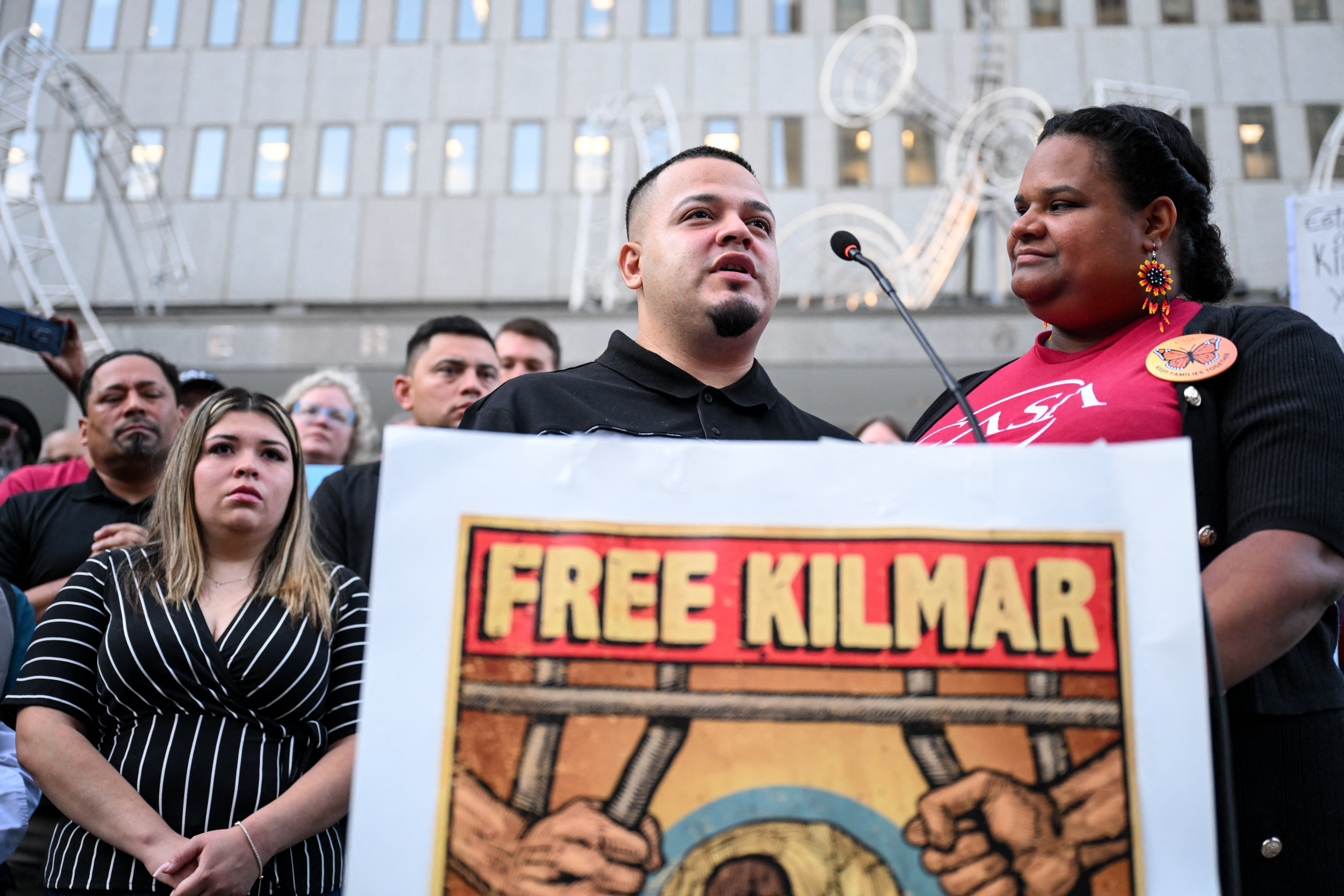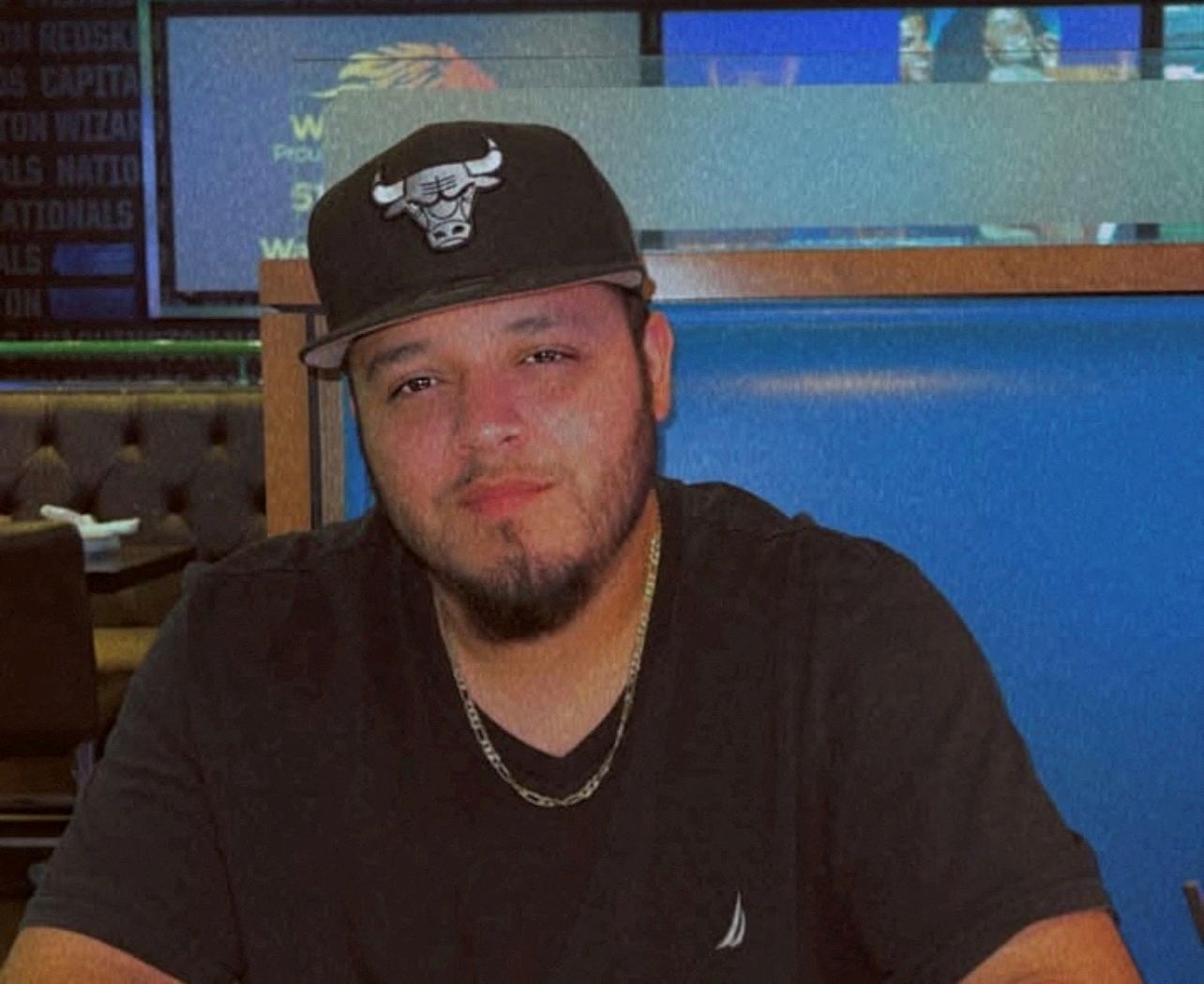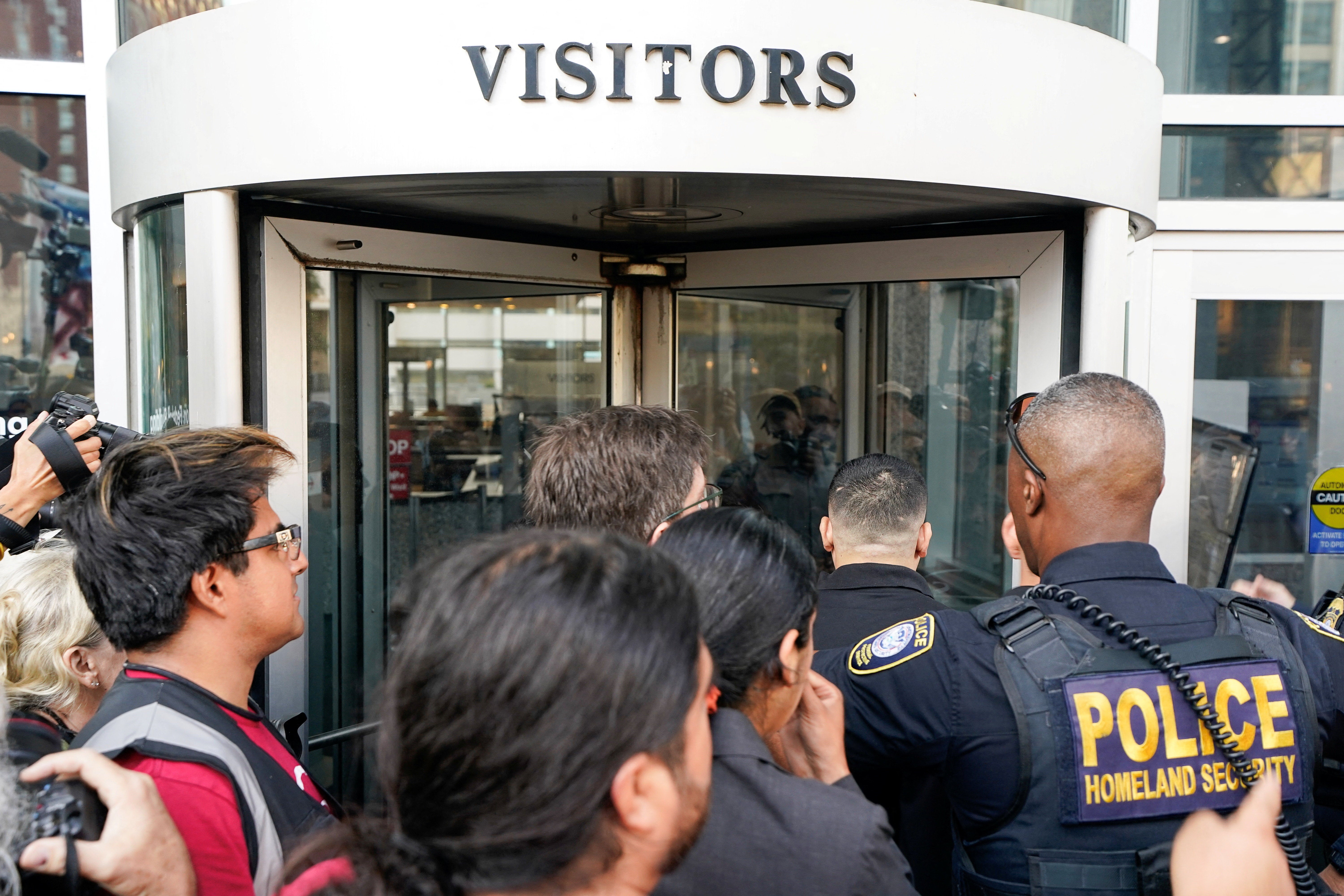Months after the government said he was mistakenly sent to a mega-prison in El Salvador, Kilmar Abrego Garcia faces another deportation threat.
Following his release from federal custody in Tennessee on Friday, immigration officials revealed plans to deport the Maryland father to Uganda, after he declined an offer to be deported to Costa Rica in exchange for pleading guilty to human smuggling charges.
According to Abrego’s defense attorneys, the government said he has until Monday morning to accept the deal, or “that offer will be off the table forever.”
Under the looming threat of a second deportation, Abrego, a 30-year-old Salvadoran national, was scheduled to check in at the U.S. Immigration and Customs Enforcement field office in Baltimore as part of the conditions of his release from federal custody on parole.
Speaking at a rally before surrendering to ICE early Monday, Abrego told the crowd: “Brothers and sisters, my name is Kilmar Abrego Garcia, and I want you to remember this: remember that I am free, and I was able to be reunited with my family.”
Shortly after he entered a federal building for his check-in, Abrego was detained by ICE agents.

MAGA-aligned officials have cast Abrego as a test case to show the administration’s resolve on the enforcement of its hardline immigration policies.
As Abrego battles against another deportation order, here’s what you need to know about his case:
Who is Kilmar Abrego Garcia?
Abrego fled El Salvador at age 16 because the Barrio 18 street gang extorted and terrorised his family, court records state. He traveled to Maryland in 2011, where his brother lives as a U.S. citizen, but was not authorized to stay.
Abrego found work in construction and met Jennifer Vasquez Sura, who would later become his wife. In 2018, he moved in with her and her two children after she became pregnant with his child.
While looking for work in a Home Depot in March 2019, police arrested Abrego and accused him of being a member of the ultra-violent, transnational street gang the Mara Salvatrucha – more commonly known as MS-13.

According to a court document, officials hung their allegations on three pieces of evidence: a Chicago Bulls hat, a hoodie and an unnamed informant who claimed Abrego was a member of the group’s clique in New York, where he has never lived.
Through his attorneys, Abrego has denied any affiliation with MS-13. He has no criminal record in either the U.S. or El Salvador.
A judge subsequently granted Abrego protection from deportation to his native El Salvador because he might face danger there over death threats from the Barrio 18 street gang.
Abrego, released under federal supervision, held a work permit and reported to ICE each year, his lawyers said.
Why was he deported to El Salvador?
On March 12, Abrego Garcia was pulled over by federal agents who accused him of having ties to MS-13 and inaccurately declared that his protected status in the U.S. had changed.
Three days later, he was on a plane with other migrants to the CECOT prison in Tecoluca, El Salvador, the biggest in all of Latin America, which holds up to 40,000 inmates. This came after Trump had invoked the Alien Enemies Act of 1798.
Just a month earlier, the Trump administration designated MS-13 a foreign terrorist organization. The street gang emerged in Los Angeles in the 1980s, comprised largely of Salvadoran immigrants fleeing their homeland after a brutal civil war.
Abrego later claimed that he was beaten and psychologically tortured in the El Salvador prison, according to court documents, which the country’s President Nayib Bukele denies.

Members of the Trump administration had positioned Abrego’s expulsion as an “administrative error.” The president and his top aides, however, have repeatedly accused Abrego of being a “terrorist” and gang member.
The Supreme Court later directed the administration to “facilitate” Abrego’s return to the U.S.
He was returned to the U.S. in June this year, before quickly being arrested and indicted by a federal grand jury on charges related to trafficking undocumented migrants, stemming from a 2022 traffic stop.
Tennessee police initially suspected human smuggling but allowed him to go without charges. Abrego pleaded not guilty, and his lawyers filed a motion to dismiss the case, citing “vindictive and selective prosecution.”
Why is he being threatened with deportation to Uganda?
In June, a U.S. magistrate ruled that Abrego had the right to be released while awaiting trial. However, at his attorneys’ request, he remained in a Tennessee jail for about 11 weeks over fears ICE would try to deport him immediately.
The following month, ICE Assistant Director Thomas Giles testified that Abrego would be detained as soon as he was released. Still, a U.S. district judge blocked the action, citing due process concerns.
Within minutes after he was released from a Tennessee jail Friday, as he awaits criminal trial, ICE officials told Abrego that he may be deported to Uganda – a country he has no known connection to – his attorneys said.
If he pleaded guilty to criminal smuggling charges against him, the Trump administration said Thursday he would be removed to Costa Rica, according to his attorneys.

Costa Rica assured he could “live freely” as a refugee or with residency status and wouldn’t be sent back to his home country, the lawyers said. Abrego appeared to have refused the arrangement and was released on Friday.
DHS then sent an email to Abrego’s attorneys, warning that ICE intended to deport the Salvadoran immigrant to Uganda “no earlier than 72 hours from now” and ordered him to appear at an ICE field office in Baltimore on Monday.
While check-ins are typically brief, Abrego’s legal team told NBC News it expects he will be taken into ICE custody.
If Abrego doesn’t change his plea in the Tennessee federal case, it is possible that he could be deported to Uganda as soon as Wednesday.
Homeland Security Secretary Kristi Noem warned the administration would not stop fighting until he was out of the country.


